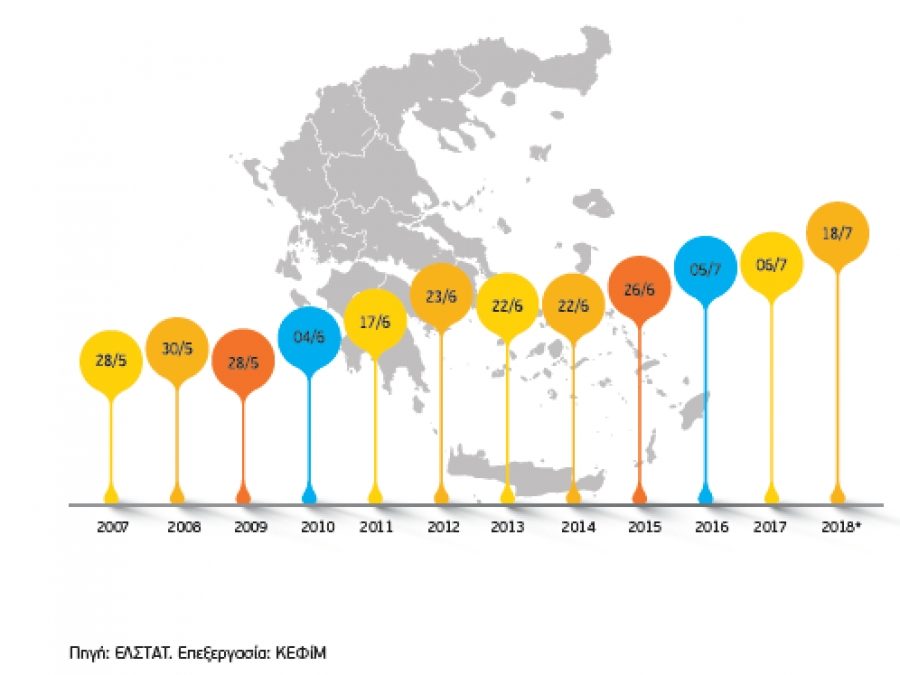
Tax Freedom Day 2018

July 18th is the Tax Freedom Day in 2018 in Greece according to the annual study of KEFIM.
While the government is celebrating the alleged exit from the memorandum, the average Greek will work until July 18 this year, ie 198 out of 365 days a year, to pay taxes to the state according to the annual study for Tax Freedom Day presented today in a press conference by the Center for Liberal Studies – Markos Dragoumis (KEFiM).
The findings of the study were presented by KEFiM’s researcher Constantinos Saravakos, while its findings were commented by New Democracy Vice President and MP Adonis Georgiadis, Drasi Vice President and KEFiM’s Board of Directors member Tasos Avrantinis, KEFiM’s President Alexander Skouras, and KEFiM’s Academic Board member Miranda Xafa.
Key findings:
- According to the goals of the 2018 Budget, Tax Freedom Day will be July 18 this year. Taxpayers will work 12 more days for the state this year, despite the optimistic forecast of the Budget for growth of 2.5% in 2018.
- In 2018 we will work 50 days for direct taxes, 67 for indirect and 81 for social contributions.
- Tax Freedom Day continues to arrive later every year, absorbing more and more of the incomes generated by Greeks. In 2018 we will work 50 whole days more for the state than in 2009 if the government achieves its goals.
- According to ELSTAT (Hellenic Statistical Authority) data, the Tax Day Freedom Day of 2017 was July 6th.
- The government did not achieve the goal of collecting taxes and contributions that it had set in the 2017 Budget. The 2018 Budget provides for the additional increase of Indirect Taxes by 3.4%, Direct Taxes by 1.6% and Net Social Contributions by 4 , 9% compared to what he budgeted last year.
- The tax burden of the Greeks is similar to that of the Germans and higher than that of the Swedes, Finns and Italians. At the same time, the satisfaction of Greeks with the state-provided health and education services, as well as with justice, is one of the lowest among the OECD member states.
Σχετικά άρθρα

 Επιστροφή στη λίστα
Επιστροφή στη λίστα


